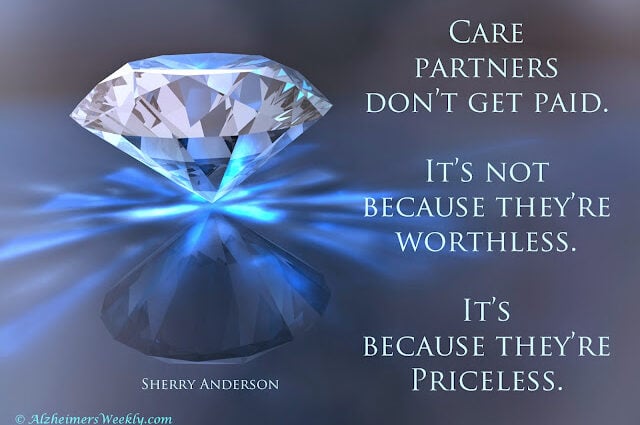
Thought of the Week: Priceless Care
Care partners don’t get paid. It’s not because they’re worthless.
It’s because they’re priceless.

Care partners don’t get paid. It’s not because they’re worthless.
It’s because they’re priceless.
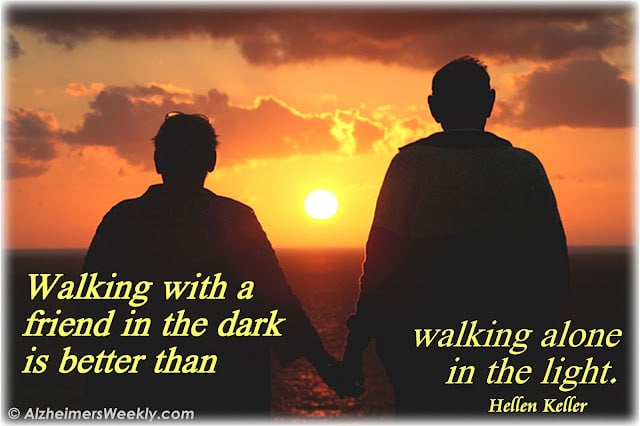
Walking with a friend in the dark is better than
Walking alone in the light.
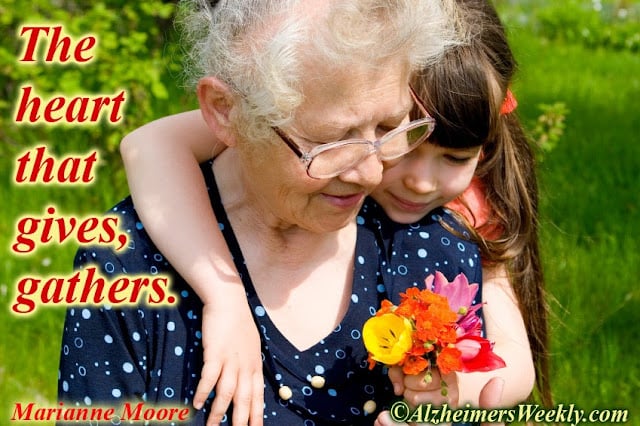
The heart that gives, gathers.
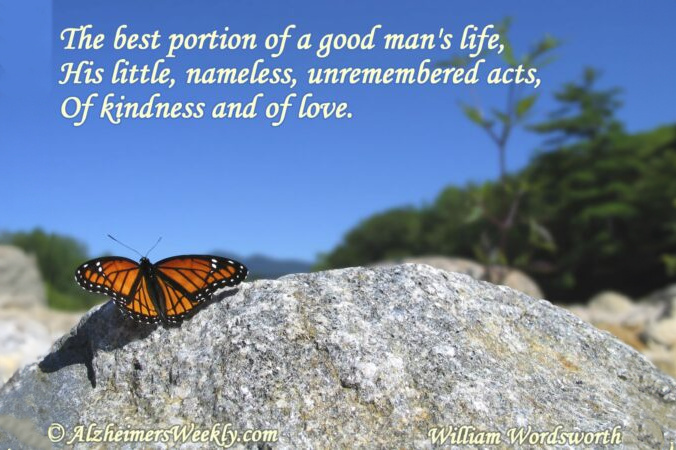
The best part of a good man’s life, His little, nameless, unremembered acts of kindness and love.
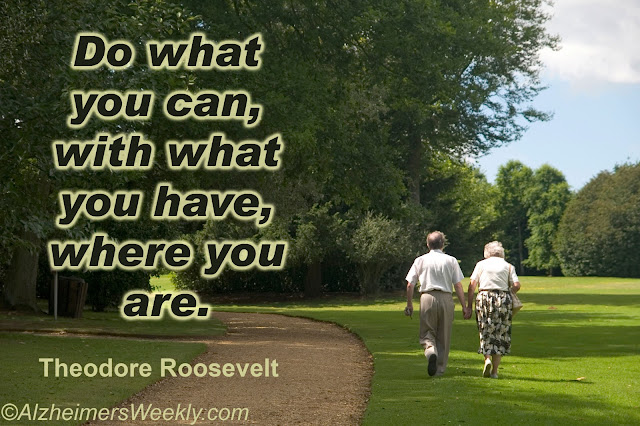
Do what you can, with what you have, where you are. (T-shirt)
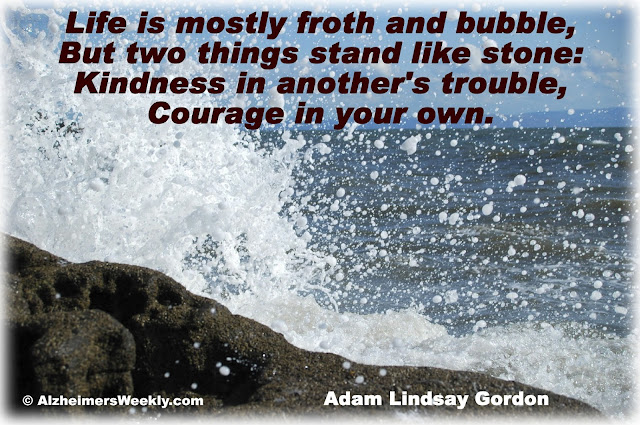
Life is mostly froth and bubble, but 2 things stand like stone: Kindness in another’s trouble, courage in your own. (Magnets, posters, etc: – click
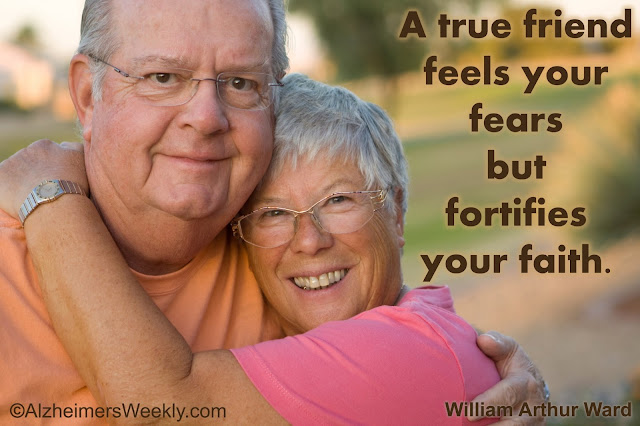
A true friend feels your fears But fortifies your faith.
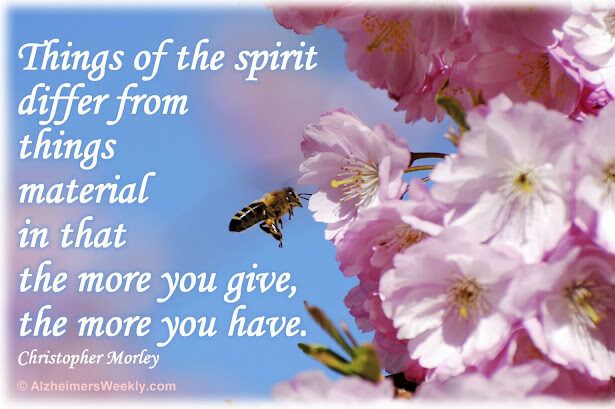
Things of the spirit differ from things material in that, The more you give, the more you have. (T-Shirts, pillows, bags – click here)
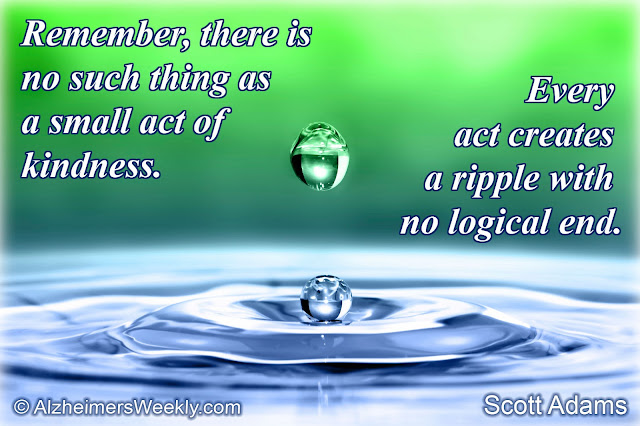
Remember, there is no such thing as a small act of kindness. Every act creates a ripple with no logical end. (CafePress)
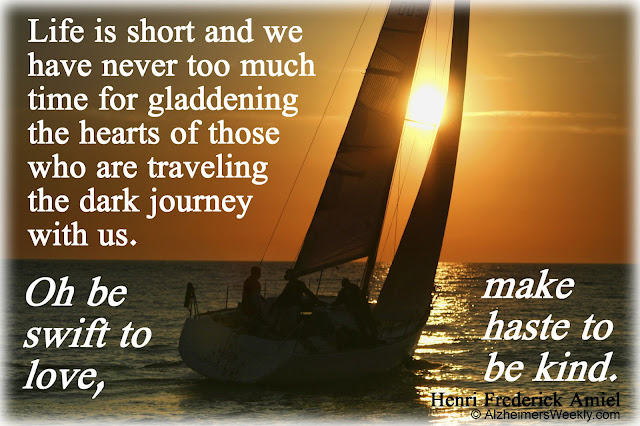
Life is short and we have never too much time for gladdening The hearts of those who are traveling the dark journey with us. Oh!

SHORT-TERM MEMORY lapses are obvious signs of Alzheimer’s, but other tell-tale signals begin to show much earlier. Learn how to look for semantic impairments, such as simple questions about size.

Discover compassionate, practical and proven strategies to navigate dementia care confidently, ensuring the well-being of both you and your loved one.

How can military service impact brain health? What are specific risk factors? Are there vital steps soldiers can take towards dementia prevention and treatment?

SHORT-TERM MEMORY lapses are obvious signs of Alzheimer’s, but other tell-tale signals begin to show much earlier. Learn how to look for semantic impairments, such as simple questions about size.

Three important dementia studies focus on HS-AGING, a type of dementia almost as common as Alzheimer’s in the 85+ group. Yet few people have heard of it. Why? What makes it different?

An intriguing study of 120 grandmothers might surprise you. Doctors know socially engaged people have better cognition and less dementia. But can a person get too much of a good thing? What’s the right balance?

Enjoy this great duet between a musician with dementia and his son. A triumph of spirit over Alzheimer’s! Sing-a-long if you like!
No spam, only news and updates.


